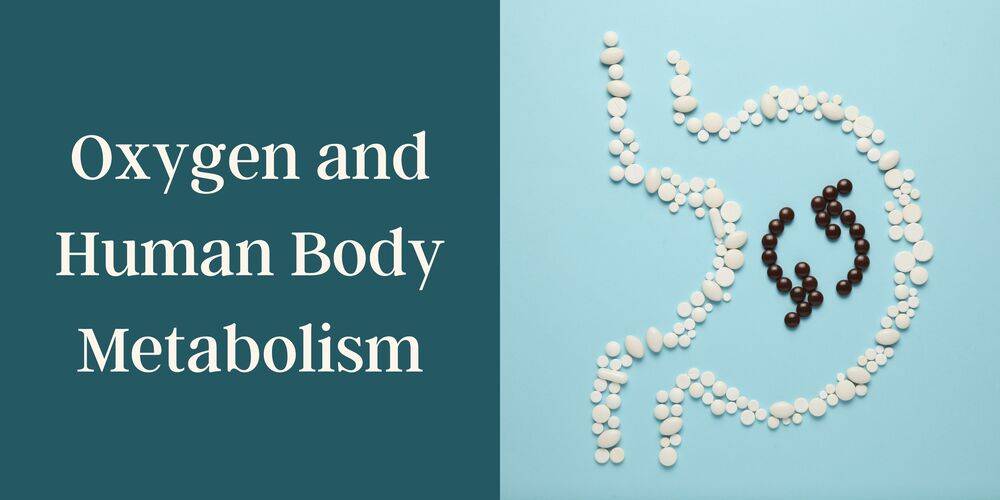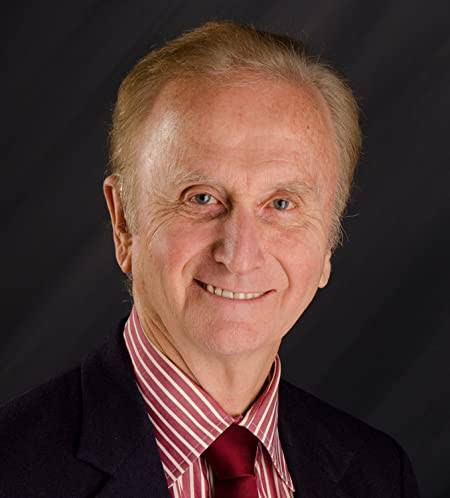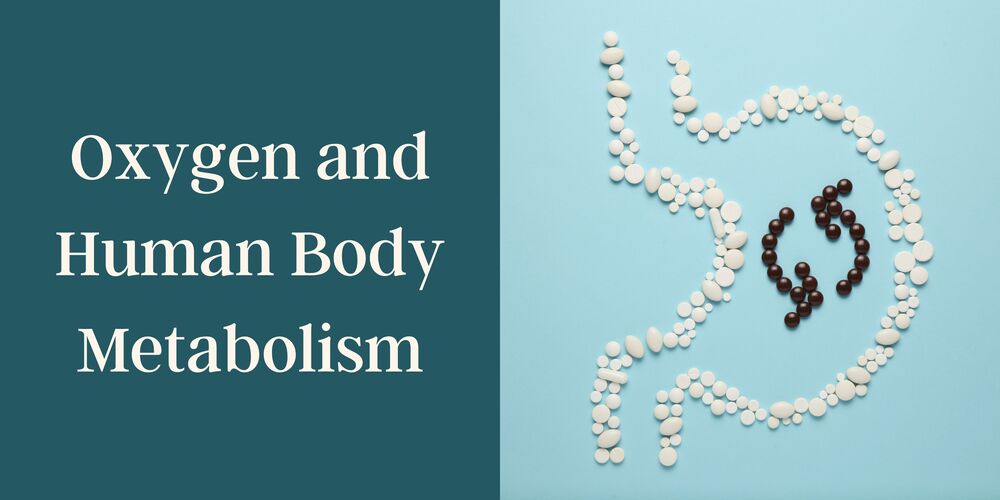El oxígeno y el metabolismo del cuerpo humano
El oxígeno y el metabolismo del cuerpo humano
26 de septiembre de 2023, por Michael Grant White
Explore la conexión entre el oxígeno y el metabolismo y aprenda cómo el oxígeno afecta la producción de energía de su cuerpo.

El metabolismo se define como "tomar alimentos y convertirlos en energía". Nuestros cuerpos necesitan oxígeno momento a momento. Comenzarán a deteriorarse rápidamente sin un suministro adecuado. La eficiencia de la conversión de oxígeno en energía celular es clave para el uso de su energía; por lo tanto, el oxígeno tiene, en efecto, su propio metabolismo.
El oxígeno se parece mucho a la comida.
Mejorar la ingesta, absorción y asimilación de oxígeno es fundamental para la energía del cuerpo y como inhibidor de enfermedades y deterioro. El movimiento invita a la necesidad de más oxígeno, pero moverse consume oxígeno. Para digerir y asimilar los alimentos se consume oxígeno. Probablemente cada función corporal consume oxígeno en distintos grados.
La actividad muscular acelera la tasa de uso de oxígeno. La ingesta de grandes cantidades de oxígeno mediante grandes esfuerzos físicos puede condicionar al organismo a funcionar con más eficiencia y ser más duradero. Sin embargo, este proceso muchas veces causa malestar al organismo. Al no ser necesario defenderse, la durabilidad no asegura la longevidad.
Donde entra en juego la respiración es el equilibrio entre el estrés y la angustia. Un cierto nivel de estrés puede ser útil y, más allá de eso, perjudicial. ¿Es necesario el estrés para garantizar un metabolismo de oxígeno suficiente? Depende de la actividad física y del nivel de habilidad o resistencia requerida; Matar dragones, sí; caminar bajo el sol, mucho menos.
A medida que la actividad aumenta en estrés hacia la angustia, necesitamos que la respiración se mantenga cada vez más profunda y fácil.
¿Porqué es eso?
El estrés puede condicionar, pero esa no es la clave de la longevidad. Haga hincapié en que las condiciones suelen ser perjudiciales. Máximo aporte energético con mínima energía. Si el estrés y el acondicionamiento ayudaron al organismo a sobrevivir, ¿por qué los atletas no viven al menos hasta los 120 años?
La clave para las condiciones más saludables desde el punto de vista de la longevidad es que la forma en que respiramos es nuestro principal modulador del estrés. El gasto es la clave para la longevidad. La dinámica de la vida a menudo requiere acción. Hay un costo de vida de oxígeno.
Esto implica que el equilibrio podría ser extremadamente relevante. Un equilibrio entre profundidad, facilidad y suavidad de la respiración y la reposición celular; facilidad, fluidez y regeneración.
El estrés moderado puede requerir que el organismo se adapte a necesidades más altas. Ingerir la mayor cantidad de oxígeno posible con el mínimo gasto de oxígeno puede ayudar a la eficiencia/metabolismo del uso de oxígeno.
“El entrenamiento físico y la práctica aumentan el umbral ventilatorio, el umbral anaeróbico y la eficiencia mecánica”, pero no garantizan la longevidad.
“El movimiento corporal regular con una mayor acción respiratoria ayuda a la adaptación hacia una mayor eficiencia funcional en la captación y utilización del oxígeno de la sangre”1. El movimiento rápido te condicionará a actuar con rapidez. El movimiento lento te condicionará a actuar con lentitud. El ayuno es más estresante que el lento a moderado. Un movimiento más rápido requiere una respiración más rápida. El movimiento lento permite una respiración más lenta. Metabolizar nuestros alimentos oxigenados lleva una cierta cantidad de tiempo.
La mayoría de nosotros no nos tomamos el tiempo para respirar.
Los programas de desarrollo de la respiración óptima requieren poco o ningún movimiento, generalmente se realizan lentamente y, por lo tanto, brindan eficiencias significativamente altas en la creación de reservas de oxígeno y ayudan en el metabolismo del oxígeno.
Aquí está la lista de prioridades desde mi perspectiva. También puede crear su propio programa a partir de esta lista o elegir entre varios programas enumerados al final de esta página.
Aprenda a respirar mejor con el kit de dominio de la respiración óptima.

Conoce a Mike White
Conozca a Michael Grant White, el entrenador de respiración óptima y obtenga información práctica sobre el desarrollo de su respiración, su salud y su longevidad.




